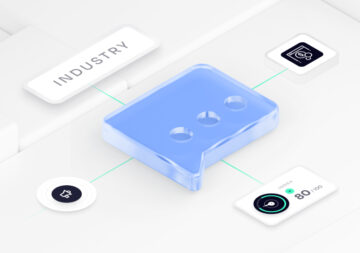In January 2023, the Zeropark Team launched the Media Planner tool, allowing advertisers interested in commerce media supply to access a summary of data from the last 3 days, showing supply insights for chosen brands and specific countries.
Read on to discover how to use the feature to facilitate bidding in Zeropark Commerce Media campaigns.
Media Planner in Commerce Media campaigns
The adoption rate of the Media Planner tool has been outstanding, and global media buyers embraced the solution helping them assess their audience potential prior to launching, as well as during the campaign optimization process. For this reason, Zeropark Teams have focused on improving the accuracy of presented real-time data, and the system has already been updated for more efficiency.
Media Planner feature offers precise statistics and estimations on:
- Available audiences (clicks);
- Brand average CPC/PPC;
- Source average CPC/PPC;
- The estimated win ratio for average bid;
- Number of available sources;
- Source market coverage (the competitiveness of a given source);
- Simulated custom bid performance on the source.
Most interestingly, Media Planner gives you a chance to manually simulate the bids to determine the best bidding strategy. Upon expanding Media Planner results with source information, the bid strength column is set by default to show the average brand CPC value.
You can see how this average value should perform based on the historical data. Remember you can use the ‘Bid Simulation’ field to input a custom bid and see performance changes on all sources. This way, you’ll be able to determine how to configure custom source bids, as they will require higher CPCs to perform better.
EXAMPLE:
Alexander, one of the Media Buyers working with Zeropark, was checking bid and audience data for the Amazon brand in the United States. Zeropark Media Planner suggested that in the last 3 days, the possible number of audiences matched with amazon.com reached 223,915 with an average CPC/PPC set as $0.1107.
Alexander could of course take this surface-level insight and try to use the average CPC to win some users in his Commerce Media campaigns. But when he looked closely at the source breakdown in Media Planner, he discovered that the average bid does not unlock the full potential of three of the richest sources: amassing over 94% of the audiences.
Alexander used the bid simulation feature to determine that:
- Bidding up by $0.06 would significantly raise his win ratio on stramineous-albatros
- Bidding up by $0.0213 would significantly raise his win ratio on porraceous-wild
- Bidding up by $0.0334 would significantly raise his win ratio on haernatic-manatee
Now, Alexander was able to optimize his agency’s campaign spend. He could set the highest bid taken from Media Planner analysis ($0.1707) as an overall campaign bid, but it may be slightly too much for a porraceous-wild source – $0.0387 per user to be precise. This created a potential risk of overpaying up to $5790 (with the assumption that nobody will outbid him and that his campaign did not have spend limits set).
With source-level bids, his media buying team could adjust PPC to avoid the risk of overspending or setting the bid too low to perform well enough (in this case – stramineous-albatross).
What changes PPC bid strength?
The performance of bids placed for commerce media campaigns will of course fluctuate and change, all due to factors that could be well-described under one term: the performance marketing industry. This means virtually everything that happens with the brand demand, both among customers and other media buyers. These include:
- seasonal spikes in the popularity of brands and products
- general shopping seasonality
- the number of competitors for brands
- competitors’ bids for the placements
- spikes in the popularity of publisher solutions and sites
Always make sure to work closely with your dedicated Zeropark Account Manager who’ll have more detailed information on how to best approach performance changes. Our Team is also a valuable source of bid suggestions and technical support.
Łukasz Pośpiech


